When it comes to choosing the right radiator for your vehicle, there’s a lot to consider. And if you’ve been researching Champion radiators, you’ve likely come across some mixed reviews.
Trust me, I’ve been there, scouring forums and review sites, trying to figure out if a product lives up to its marketing claims. Spoiler alert: Champion radiators may not be the shining example of reliability they’re advertised to be.
Let’s break down what you really need to know—from the pros and cons to how they stack up against competitors and tips for maintenance. By the end of this, you’ll have all the information you need to decide if Champion radiators are worth your hard-earned money.
Why You Might Be Considering Champion Radiators?
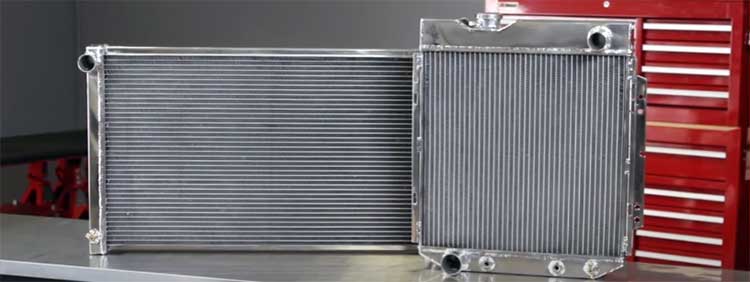
At first glance, Champion radiators seem like a solid option. They’re made from high-grade aluminum, boast a lifetime limited warranty, and claim to fit seamlessly into your vehicle without requiring modifications.
The all-aluminum construction is appealing because it’s lightweight and durable. Plus, the promise of superior cooling performance can make you think they’re an ideal upgrade for your classic car or daily driver.
But here’s the thing: a product’s marketing can only tell part of the story. Let’s peel back the curtain and explore the real-world experience with Champion radiators.
The Pros of Champion Radiators
Let’s start with the positives—because, yes, there are some.
- Affordable Pricing: Champion radiators are competitively priced compared to other aftermarket radiators. For those on a tight budget, this can make them an attractive option.
- Lightweight Design: The all-aluminum build makes these radiators lightweight, which is especially beneficial for performance-oriented vehicles. Less weight means better handling and fuel efficiency.
- Easy Installation: Many users report that Champion radiators fit their vehicles without the need for modifications. The compatibility with original mounts and fan shrouds is a nice touch.
- Enhanced Cooling Capacity (In Theory): The 3-row design and brazed core technology are designed to improve heat dissipation, keeping your engine running cooler during demanding conditions.
The Cons of Champion Radiators
Unfortunately, the cons often outweigh the pros, especially when you dig into real user experiences.
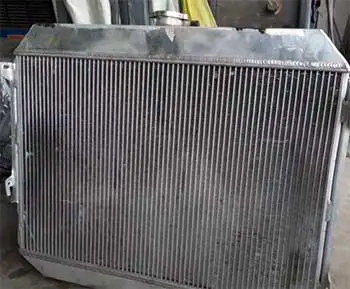
- Quality Control Issues: One of the biggest complaints is inconsistent quality. Some radiators arrive with manufacturing defects, such as leaks or poor welding. Others develop issues after minimal use, like leaks at the seams or pitted surfaces.
- Warranty Challenges: Champion advertises a lifetime limited warranty, but many customers report frustrating experiences trying to get replacements or repairs. You’re often met with hoops to jump through—whether it’s providing excessive documentation or facing delays that stretch into weeks or months.
- Poor Customer Service: This is a recurring theme. From unhelpful representatives to rude interactions, many customers feel let down when they reach out for support. If customer service is important to you, this could be a dealbreaker.
- Durability Concerns: Several reviews mention radiators failing within a few years, even with proper maintenance. For a product marketed as high-quality, this is disappointing.
Maintenance Tips For Aluminum Radiators
Proper maintenance can extend the life of any radiator, including Champion radiators. Here’s what you need to know:
- Use the Right Coolant: Always use a coolant that’s compatible with aluminum radiators. Avoid mixing different types of coolants, as this can lead to corrosion and reduced efficiency.
- Flush the System Regularly: Flush your radiator and cooling system at least once a year. This removes buildup and ensures optimal performance.
- Inspect for Leaks: Check for leaks regularly, especially around the seams. Early detection can prevent more significant issues.
- Clean the Exterior: Dirt and debris can accumulate on the radiator’s fins, reducing airflow. Gently clean the exterior with compressed air or a soft brush.
- Monitor Operating Temperatures: Keep an eye on your engine’s temperature gauge. If it’s running hotter than usual, your radiator might need attention.
- Use Distilled Water: When mixing coolant with water, always use distilled water. Tap water contains minerals that can build up and cause internal blockages or corrosion over time.
- Ensure Proper Airflow: Inspect your radiator for obstructions like bugs, leaves, or dirt. A clean radiator ensures maximum airflow and cooling efficiency.
- Replace Hoses When Needed: A radiator is only as strong as its supporting components. Inspect and replace hoses periodically to prevent failures that could lead to overheating.
Feedback From Experience: What Users Are Saying
It’s impossible to ignore the significant number of negative reviews Champion radiators have received. Here are some highlights:
- Leak Issues: Many customers report leaks within the first year of use, sometimes even upon installation.
- Warranty Frustrations: Stories of delayed replacements and uncooperative support teams are common.
- Customer Service Complaints: Rude interactions and unhelpful representatives leave a bad taste in many customers’ mouths.
While there are some positive reviews, the pattern of complaints raises red flags. Even customers who initially praised the radiator for its affordability often revised their opinions after encountering issues.
Comparison: Champion Radiators Vs. Other Brands
To help you make an informed decision, here’s a detailed comparison of Champion radiators with other popular brands.
Champion Radiator Vs. DENSO Radiator
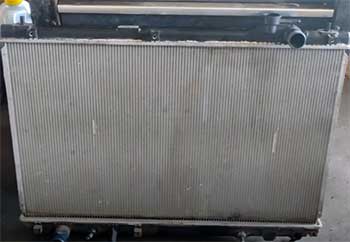
- Build Quality: DENSO radiators are widely recognized for their exceptional build quality. Manufactured to meet or exceed OEM standards, DENSO radiators often last longer and are more reliable than Champion radiators. On the other hand, Champion radiators frequently face complaints about leaks and poor welding.
- Performance: While Champion radiators promise enhanced cooling capacity with their 3-row aluminum design, DENSO radiators provide consistent cooling performance backed by rigorous quality control. DENSO’s cooling efficiency is a proven standard, particularly in high-temperature environments.
- Price: Champion radiators are cheaper, but the cost savings can be offset by the need for frequent replacements or repairs. DENSO radiators are more expensive but offer better long-term value.
Champion Radiator Vs. Griffin Radiator
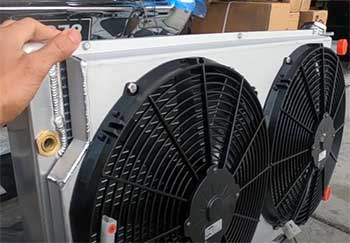
- Build Quality: Griffin radiators boast superior craftsmanship with thick aluminum cores and TIG-welded seams. Unlike Champion radiators, which sometimes arrive with manufacturing defects, Griffin’s attention to detail ensures durability and reliability over time.
- Cooling Efficiency: Griffin radiators are known for their high cooling efficiency, making them a favorite among performance car enthusiasts. Champion’s cooling performance is decent but inconsistent, according to user feedback.
- Customer Support: Griffin’s customer service is praised for being responsive and helpful. In contrast, Champion has a reputation for uncooperative and unfriendly support, leaving many customers frustrated.
- Price: Griffin radiators come with a premium price tag, but the investment is justified by their long-lasting performance and reliability.
Champion Radiator Vs. Cold Case Radiator
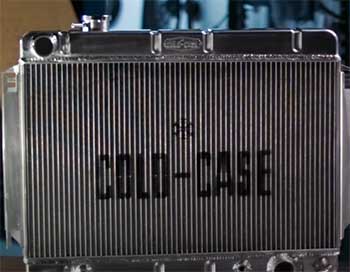
- Build Quality: Cold Case radiators are designed with high-quality aluminum and undergo extensive quality checks. Compared to Champion’s mixed reputation for quality control, Cold Case stands out as a more reliable option.
- Fit and Installation: Both Champion and Cold Case radiators are designed to fit without modifications. However, Cold Case users report fewer fitment issues, while Champion sometimes struggles with consistency in manufacturing dimensions.
- Warranty and Support: Cold Case offers a solid lifetime warranty and has a better track record of honoring it compared to Champion. Customers find Cold Case’s support team more approachable and efficient.
- Price: Cold Case radiators are slightly more expensive than Champion but offer better durability and fewer long-term headaches.
Should You Buy A Champion Radiator?
Given the mixed feedback and recurring issues, I can’t confidently recommend Champion radiators. If you’re on a tight budget and willing to take a gamble, they might be worth considering.
But if reliability, quality, and customer support are important to you, investing in a higher-quality brand like Mishimoto or Koyo is a safer bet.
Your radiator is an essential part of your vehicle’s cooling system. Cutting corners might save you money in the short term, but it could cost you more in the long run—whether it’s dealing with breakdowns, overheating, or frequent replacements.
Frequently Asked Questions (FAQ)
Champion radiators are manufactured at an ISO-certified facility. They claim to use high-grade aluminum and advanced manufacturing techniques, but quality control issues have been a recurring concern among users.
The best coolant for a Champion radiator is one specifically designed for aluminum systems. Avoid using coolants with high phosphate levels or mixing different types, as this can cause corrosion and reduce efficiency. Always check your vehicle’s manual for recommendations.
Yes, aluminum radiators can make a difference in cooling performance. They’re lightweight, durable, and offer excellent heat dissipation. However, the benefits depend on the radiator’s build quality and design. Not all aluminum radiators are created equal, so choosing a reputable brand is crucial.
With proper maintenance, a high-quality aluminum radiator can last up to 10 years or more. However, as seen with Champion radiators, inconsistent quality can significantly shorten their lifespan.
Final Thoughts
Buying a radiator is a significant investment, and it’s one you want to get right. While Champion radiators have some appealing features, the frequent reports of quality and service issues are hard to ignore.
If you value peace of mind and long-term reliability, it’s worth spending a little more for a trusted brand.
Your vehicle’s cooling system is critical to its performance and longevity. Don’t cut corners. Choose a radiator that delivers the quality and support you deserve. Spending a bit more upfront can save you a lot of hassle, money, and stress down the road.
After all, a radiator isn’t just another part—it’s a vital component that ensures your engine stays in optimal condition for years to come.

